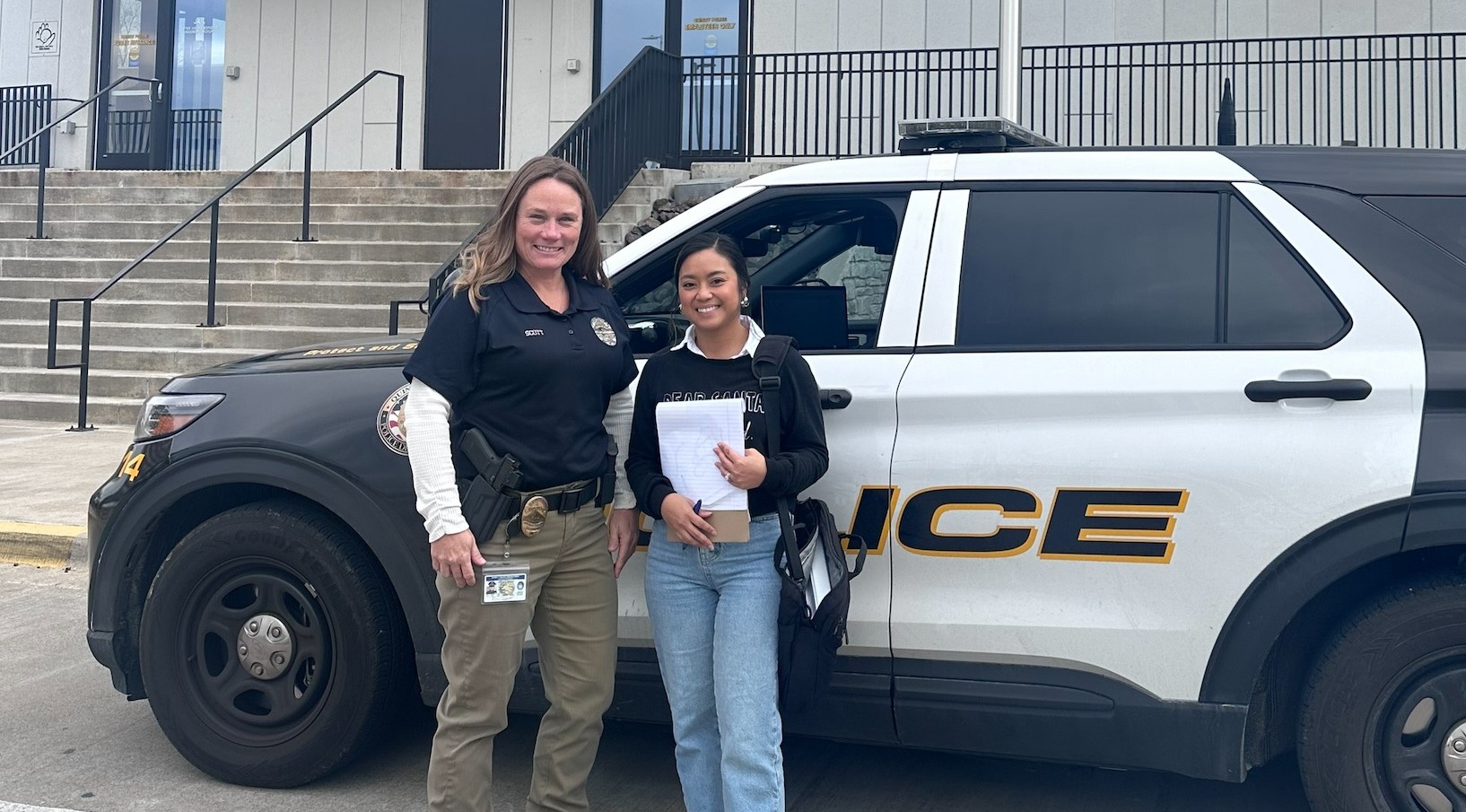Clarity Healthcare teams with Adams County Sheriff’s Department deputies for crisis response

QUINCY — When people don’t know who else to call, they call the police.
When a person experiences a mental health crisis, police officers and sheriff’s deputies may also need help.
Now they have someone to call.
Clarity Healthcare recently reached an agreement with the Adams County Sheriff’s Department to begin providing mental health professionals on-call for crisis and non-emergency situations. Beginning Jan. 1, deputies can call Clarity Healthcare’s mobile response team in cases when a referral to mental health care resources is a better option than an arrest.
The move is designed to conserve deputies’ time and resources and provide faster, better service to Adams County residents.
“The purpose is not only for people in behavioral health crises but also to ensure that police officers are back out in the community and experts in the field of mental health take on those instances,” Clarity Healthcare Vice President of Integrated Services Stacey Juliffs said in a press release.
Per the terms of the agreement, sheriff’s deputies can call a mobile response team to connect people with resources when they encounter an issue better left to mental health professionals.
Adams County Sheriff Tony Grootens hopes deputies will use the phone number to call the mobile response team to refer people and families to services rather than allow already tense situations to escalate.
“In today’s society, the cops don’t look for reasons to arrest somebody. They look for more of a reason to solve the problem rather than make arrests,” Grootens said. “We would rather see them have the treatment and the facilities to treat these people rather than to have them end up in a law enforcement situation.”
Clarity Healthcare also has a mental health response agreement with the Quincy Police Department.
Clarity’s mobile crisis unit aims to respond to calls from police officers between 30 and 45 minutes after the call is placed. The service is accessible to deputies and police officers at any time.
“Quincy is lucky to have law enforcement that is forward thinking in wanting to partner with mental health agencies in order for them to do their jobs better,” Juliffs said. “They have administrators who really focus on how we can provide treatment to those individuals if that’s what they need.”
When Clarity Healthcare became a Certified Community Behavioral Health Clinic under federal guidelines, it gained the ability to fund the mobile crisis response program without billing the Quincy Police Department for the service.
Quincy Police Chief Adam Yates says the agreement has helped some of Quincy’s most vulnerable residents break from the cycle mental health challenges can create.
“What this does is give our officers the ability to identify folks who need mental health resources and attempt to connect them with Clarity as a mental health provider,” Yates said. “It’s really a great tool for our officers. Instead of just continuing to go to the same house over and over and not having any solution, it hopefully provides a pathway for that individual to get into some kind of service.”
Yates said the partnership saves hours of police officers’ time when it comes to evaluating people for hospitalization, severe mental health issues and the possibility of arrest.
“It’s really beneficial for our officers who don’t have that type of expertise to call someone who is willing to respond to the scene and can make informed decisions on what needs to happen, and ultimately deal with an issue that the officers do not have the tools or the talent to deal with,” Yates said.
Deanna Sublette, director of behavioral health for Clarity Healthcare, says the mobile response team is made up of six members with plans to add five more members in January.
“We’ve got case managers, we’ve got an intake worker, we’ve got therapists that are on the team, so it’s just a variety of different folks who provide services within Clarity who come together to ensure one vision to help those who are in need of crisis stabilization,” Sublette said.
If a law enforcement agent sees a person struggling with a mental health issue — but they aren’t committing a crime and aren’t creating a large enough disturbance to warrant arrest — the agent can refer the person to a responder with Clarity’s mobile unit.
“We’ve also grown relationships with the Quincy Police Department the Adams County Sherriff’s Department. They’re a fun bunch and they truly do want to help,” Sublette said. “They sometimes feel so lost on what they can do, and so when they see us, they’re excited because they feel like they have something to offer the clients.”
Grootens says Adams County has a population of unsheltered persons who fall into harmful cycles where small offenses can lead to jail time — usually unnecessarily and only because of the challenges unsheltered persons face when navigating the Illinois court system.
“We see it every day, and a lot of it has changed over the years,” Grootens said. “They end up getting locked up for petty offenses, released and then locked up again on warrants. They end up spending time in jail for something that they shouldn’t have even gone to jail for.”
Miss Clipping Out Stories to Save for Later?
Click the Purchase Story button below to order a print of this story. We will print it for you on matte photo paper to keep forever.

